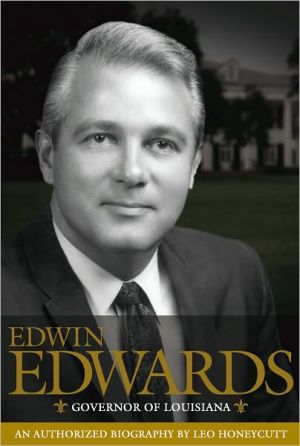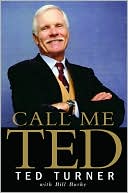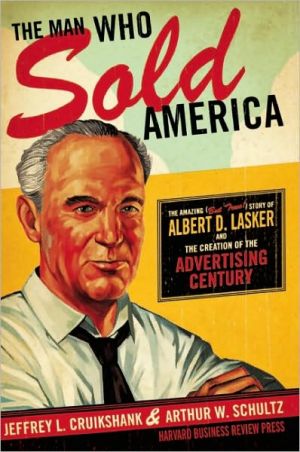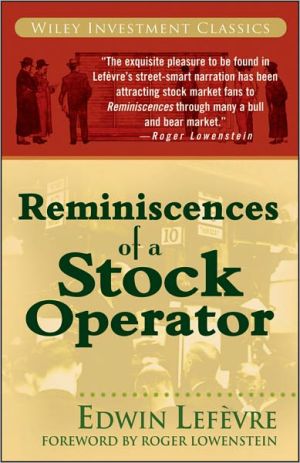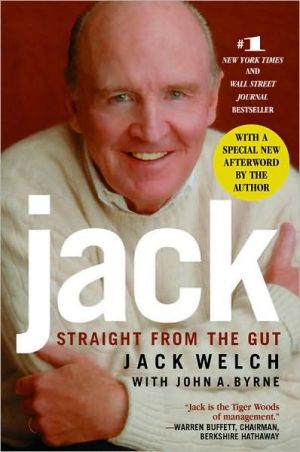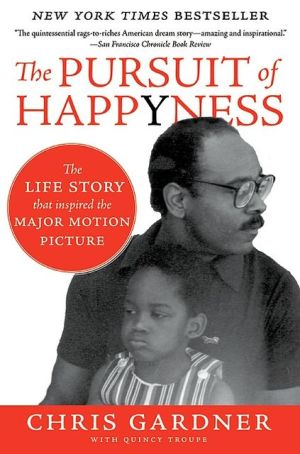Rock on: An Office Power Ballad
How do you land a sweet six-figure marketing gig at the hallowed record label known for having signed everyone from Led Zeppelin to Stone Temple Pilots? You start with a resume like Dan Kennedy's:\ • Dressed up as a member of Kiss every Halloween\ • Memorized Led Zeppelin IV at age ten\ • Fronted a lip-sync band in junior high\ • Worked as a college DJ while he was a college drop-out\ In his outrageous memoir, McSweeney's contributor Kennedy chronicles his misadventures at a major record...
Search in google:
How do you land a sweet six-figure marketing gig at the hallowed record label known for having signed everyone from Led Zeppelin to Stone Temple Pilots? You start with a resume like Dan Kennedy's:• Dressed up as a member of Kiss every Halloween • Memorized Led Zeppelin IV at age ten • Fronted a lip-sync band in junior high • Worked as a college DJ while he was a college drop-outIn his outrageous memoir, McSweeney's contributor Kennedy chronicles his misadventures at a major record label. Whether he's directing a gangsta rapper's commercial or battling his punk roots to create an ad campaign celebrating the love songs of Phil Collins, Kennedy's in way over his head. And from the looks of those sitting around the boardroom, he's not alone.Egomaniacs, wackos, incompetents, and executive assistants who know more than their seven-figure bosses round out this power-ballad to office life and rock and roll. The Barnes & Noble Review Like jumping onto a rapidly sinking ship, Kennedy signed on for a marketing job in the dying record industry of the early 2000s. Though he was in his mid-30s, this stint marked his most authentic imitation of grown-up success, replete with an assistant and overpriced personal touches for his desk. Having taken a circuitous path to responsible adulthood, the author of Loser Goes First rolled through his 20s "barely dodging bullets like nametags and hairnets." The new endeavor was admittedly more driven by a lifelong passion for music than professional ambition. Despite the desire to be perceived by colleagues as normal, he confesses that this gig makes him "think half of what everyone my age does is a lie." The real falsehood, it turns out, is the perception that a determined career path equates security. For months, rumors of a buyout circulated, allowing Kennedy a certain freedom in questioning what, exactly, the company's executives did. Hilarious non sequiturs interspersed throughout the chapters include alternative titles for his book, the first of which is "We Sit in Expensive Chairs, Guessing What Might Fascinate You." Several of the famous musicians with whom he interacted also make easy targets for his biting criticism, particularly the ones he perceives as sellouts hawking their confessional ballads for use in disposable razor commercials. Considering that the office was phased out in a series of cost-cutting wheezes, it's fitting that his final pages consist of scathing and unrelated lists. Kennedy filters scenes through a self-deprecating screen, deflecting any serious self-analysis with lines like "I'm too emotionally unavailable to write a soul song," but after his layoff he concedes somewhat sadly that "we all grow up." --Sarah Norris
\ Booklist"Kennedy's self-deprecating wit is highly appealing."—Booklist\ \ \ \ \ GQ"A very funny memoir about [Kennedy's] days as a marketing executive in the currently flailing music business."--GQ\ \ \ USA Today"Imagine a love child born of "The Office" and High Fidelity. With Knocked Up as the slacker godfather. That captures Dan Kennedy's memoir Rock On: An Office Power Ballad, his amazingly funny yet perceptive look at rock music and big corporations in crisis."\ —USA Today\ \ \ \ \ Time Out New York"[Rock On] is not just laugh-out-loud funny; it‚Äôs snort-audibly-on-the-subway funny. . . . [Kennedy] spins his misgivings into hilarious gold, and in the process illustrates how to use your disillusion."\ —Time Out New York\ \ \ \ \ New York Times Book Review"Rock On is a succession of gently mordant vignettes, with hilariously spot-on asides about media image-making, music-biz hierarchies and sensitive singer-songwriters. . . . Like Walter Mitty in reverse, Kennedy constantly retreats from an absurd corporate environment—equal parts tyranny, vanity and fecklessness—into neurotic internal-reality checks even funnier than the folly all around him."\ —The New York Times Book Review\ \ \ \ \ \ People Magazine"Fast-moving and darkly funny, Rock On should be a chart topper."\ —People, four star review\ \ \ \ \ People Magazine"Fast-moving and darkly funny, Rock On should be a chart topper."\ —People, four star review\ \ \ \ \ USA Today"Imagine a love child born of "The Office" and High Fidelity. With Knocked Up as the slacker godfather. That captures Dan Kennedy's memoir Rock On: An Office Power Ballad, his amazingly funny yet perceptive look at rock music and big corporations in crisis."\ —USA Today\ \ \ \ \ Booklist"Kennedy's self-deprecating wit is highly appealing."—Booklist\ \ \ \ \ Time Out New York"[Rock On] is not just laugh-out-loud funny; it‚Äôs snort-audibly-on-the-subway funny. . . . [Kennedy] spins his misgivings into hilarious gold, and in the process illustrates how to use your disillusion."\ —Time Out New York\ \ \ \ \ New York Times Book Review"Rock On is a succession of gently mordant vignettes, with hilariously spot-on asides about media image-making, music-biz hierarchies and sensitive singer-songwriters. . . . Like Walter Mitty in reverse, Kennedy constantly retreats from an absurd corporate environment—equal parts tyranny, vanity and fecklessness—into neurotic internal-reality checks even funnier than the folly all around him."\ —The New York Times Book Review\ \ \ \ \ \ GQ"A very funny memoir about [Kennedy's] days as a marketing executive in the currently flailing music business."--GQ\ \ \ \ \ Michael AzerradThe music industry's decline has been swift, merciless and bloody; perhaps it's best to broach such a dire story by laughing. A memoir of Dan Kennedy's 18-month stint in the music business, Rock On is a succession of gently mordant vignettes, with hilariously spot-on asides about media image-making, music-biz hierarchies and sensitive singer-songwriters. It's also a coming-of-age story.\ —The New York Times\ \ \ \ \ Publishers WeeklyKennedy, a McSweeney'scontributor, offers an entertaining explanation of how, after years of stumbling through adulthood, he landed an improbable gig writing and producing ads for Atlantic Records. For a kid who grew up dressing like Gene Simmons each Halloween in the 1970s, this should be a dream job-hobnobbing with rock stars and industry legends while making more money than he ever had before. The trouble is that, by the early 21st century, he finds that Atlantic is more corporate than rock. Kennedy's run-ins with rock stars involve helping Jewel sell razors and mistaking Duran Duran's manager for a member of the band. When he's not inadvertently insulting aging rockers, Kennedy worries incessantly about office politics-whether he's made a permanent enemy of a co-worker by asking what kind of muffin she's eating, which executives to greet in the hallway and which to ignore. Kennedy's style-hilarious, paranoid and vulnerable-captures wonderfully the absurdity of the corporate music industry. Readers will appreciate the many lists that pepper the book, including "Inappropriate Greetings and Salutations for Middle-Aged White Record Executives to Exchange: #1. Hello, Dawg." (Feb.)\ Copyright 2007 Reed Business Information\ \ \ \ \ Library JournalMcSweeney'scontributor Kennedy's memoir is, in the new tradition of rock 'n' roll, a semi-ironic, semiwistful examination of the author's past, wherein he discusses the bittersweet nature of finally breaking into the record industry only to discover that it's not quite what he expected. Instead of spending his days doing glamorous work with up-and-coming bands, he toils away writing magazine ad copy for artists who have, to put it gently, seen hipper days. Kennedy is a talented humor writer, and the book is riotously funny throughout. One especially entertaining encounter revolves around a music-video shoot where Kennedy presents a tray of cheese and grapes that his bosses have provided for lunch to rap star Fat Joe and his large crew, who then proceed to laugh at him, order delivery barbecue, and get stoned in a conference room. Readers with an interest in pop music will get the most out of this book, but anyone who appreciates good writing will enjoy it as well. Recommended for all public libraries.\ —John Helling\ \ \ \ \ \ Kirkus ReviewsThe music business isn't pretty, but it's pretty funny. Humor writer and McSweeney's contributor Kennedy (Loser Goes First, 2003) recounts his short career as a marketing executive for Atlantic Records in this alternately hilarious and depressing memoir. Anyone who cares about pop music will find much here to inspire disgust and dismay. The toxic egos, office politics, stupidity and sheer corporate cheesiness of the modern music business makes working in rock-'n'-roll seem about as fulfilling as managing a strip-mall discount shoe store. Kennedy, a pop-addled, self-deprecating hipster scribe in the Chuck Klosterman mode, mines this dreary state of affairs for dependable laughs, but the bland, low-intensity awfulness of the milieu eventually begins to grate. An extended account of a transcendent Iggy Pop concert livens things up, as Kennedy, swept up in Pop's charisma and anti-establishment theatrics, channels Lester Bangs in endearingly direct and emotional prose that contrasts sharply with the low-key, deadpan miserablism that dominates the rest of the text. But Kennedy doesn't always play fair. After mocking songstress Jewel for selling out her integrity by participating in an advertising campaign for women's razors, he gives the Great Ig a free pass, declining to mention the punk godfather's licensing agreement with a cruise-ship line. Throughout, Kennedy displays too much self-congratulatory smugness-cloaked in disingenuous irony-about the foibles of his colleagues to fully engage the reader. However, assignments such as a campaign celebrating 25 years of love songs by Phil Collins do make the sour tone understandable. A fitfully funny, ultimately sad look at the continuing decay ofour popular culture.\ \ \ \ \ The Barnes & Noble ReviewLike jumping onto a rapidly sinking ship, Kennedy signed on for a marketing job in the dying record industry of the early 2000s. Though he was in his mid-30s, this stint marked his most authentic imitation of grown-up success, replete with an assistant and overpriced personal touches for his desk. Having taken a circuitous path to responsible adulthood, the author of Loser Goes First rolled through his 20s "barely dodging bullets like nametags and hairnets." The new endeavor was admittedly more driven by a lifelong passion for music than professional ambition. Despite the desire to be perceived by colleagues as normal, he confesses that this gig makes him "think half of what everyone my age does is a lie." The real falsehood, it turns out, is the perception that a determined career path equates security. For months, rumors of a buyout circulated, allowing Kennedy a certain freedom in questioning what, exactly, the company's executives did. Hilarious non sequiturs interspersed throughout the chapters include alternative titles for his book, the first of which is "We Sit in Expensive Chairs, Guessing What Might Fascinate You." Several of the famous musicians with whom he interacted also make easy targets for his biting criticism, particularly the ones he perceives as sellouts hawking their confessional ballads for use in disposable razor commercials. Considering that the office was phased out in a series of cost-cutting wheezes, it's fitting that his final pages consist of scathing and unrelated lists. Kennedy filters scenes through a self-deprecating screen, deflecting any serious self-analysis with lines like "I'm too emotionally unavailable to write a soul song," but after his layoff he concedes somewhat sadly that "we all grow up." --Sarah Norris\ \

